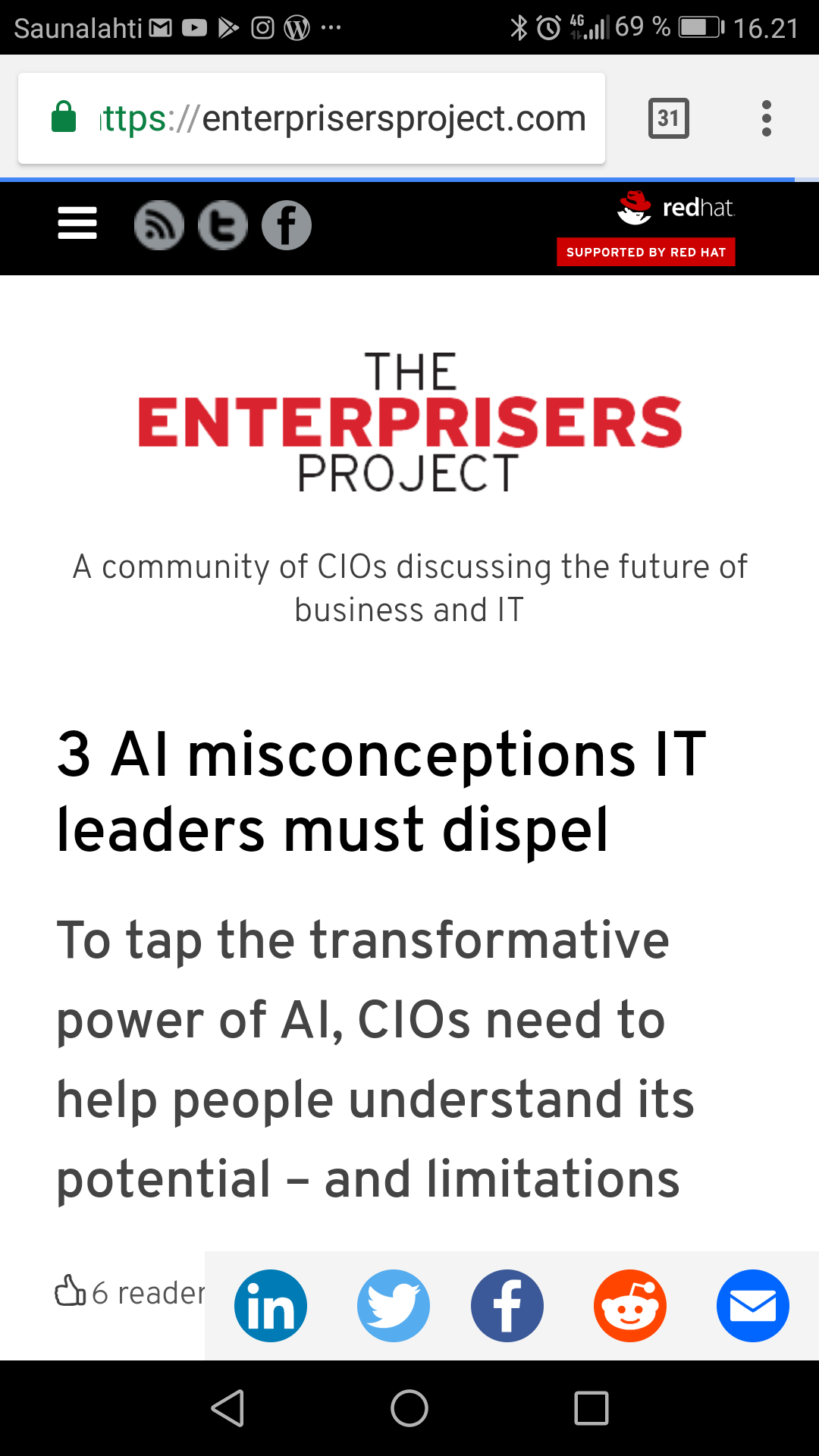Artificial intelligence is rapidly changing many aspects of how we work and live. (How many stories did you read last week about self-driving cars and job-stealing robots? Perhaps your holiday shopping involved some AI algorithms, as well.) But despite the constant flow of news, many misconceptions about AI remain.
AI doesn’t think in our sense of the word at all, Scriffignano explains. “In many ways, it’s not really intelligence. It’s regressive.”
IT leaders should make deliberate choices about what AI can and can’t do on its own. “You have to pay attention to giving AI autonomy intentionally and not by accident,”

7,003 Comments
Tomi Engdahl says:
https://colab.google/notebooks/
https://colab.research.google.com/
Tomi Engdahl says:
Two AI agents on a phone call realize they’re both AI and switch to a superior audio signal ggwave
https://m.youtube.com/watch?v=EtNagNezo8w
https://github.com/ggerganov/ggwave